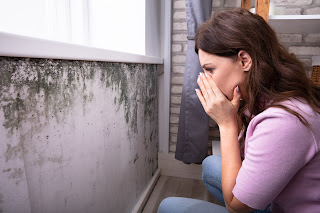Mold (How Air Quality Testing May Make The Difference In Which Home You Buy)
We understand that your home or office is more than just a building—it's where you spend a considerable portion of your life. In Florida's humid climate, mold can become a common concern for many property owners. Our mission is to ensure your spaces are safe, healthy, and free of unwanted mold. This guide will delve a little bit into what mold is, how you can be exposed to it, and the potential health effects of mold exposure.
What Is Mold?
Mold is a type of fungus that plays a crucial role in nature by breaking down dead organic matter. However, when it grows unchecked inside buildings, it can cause problems. Mold reproduces through tiny particles called spores, which are invisible to the naked eye and can easily spread through the air.Where Do People Spend the Majority of Their Time?
Most individuals spend around 90% of their time indoors, whether at home, in the office, or in other indoor environments. This significant indoor dwelling time emphasizes the importance of maintaining a healthy indoor environment, free from mold and other pollutants.
What Is a Mold Spore?
A mold spore is essentially a seed that molds use to reproduce. These spores are incredibly resilient and can survive under harsh conditions where mold itself cannot grow. When they land on suitable surfaces under the right conditions—namely, moisture, warmth, and a food source—they can start to grow into new mold colonies.
What Does Mold Do When Growing in Buildings?
When mold grows in buildings, it can digest and degrade the materials it grows on, causing structural damage over time. More immediately, mold growth can lead to poor indoor air quality, creating a musty odor and contributing to various health problems, especially for those with allergies, asthma, or compromised immune systems.
Mold Facts You Should Know
- Mold needs moisture to grow. Reducing indoor humidity levels can help prevent mold growth.
There is no practical way to eliminate all mold and mold spores indoors; the key is controlling moisture.
Cleaning small areas of mold can be done with soap and water, but extensive mold growth requires professional remediation.
How Can You Be Exposed to Mold?
You can be exposed to mold through the inhalation of airborne spores, direct skin contact, or ingestion. In indoor environments, exposure is most commonly through the air, especially in areas with poor ventilation or where mold has been allowed to grow unchecked.
Health Effects of Mold Exposure
Mold exposure can lead to a variety of health issues, especially for individuals with allergies, asthma, or immune suppression. Common symptoms include coughing, sneezing, throat irritation, nasal stuffiness, eye irritation, and, in some cases, skin irritation. People with mold allergies may have more severe reactions, and immune-compromised individuals can get serious lung infections.
Bottom Line
Staying informed and vigilant, you can protect your health and your property from the potential risks posed by mold. If you suspect mold growth in your home, don't hesitate to reach out to us for a professional inspection with Air Quality testing to help keep your indoor environments safe and healthy.
We’re Here To Help
Feel free to call us if you have questions at 407-319-4608. You may also schedule your inspection or find additional information on our website.
*Image from Shutterstock


